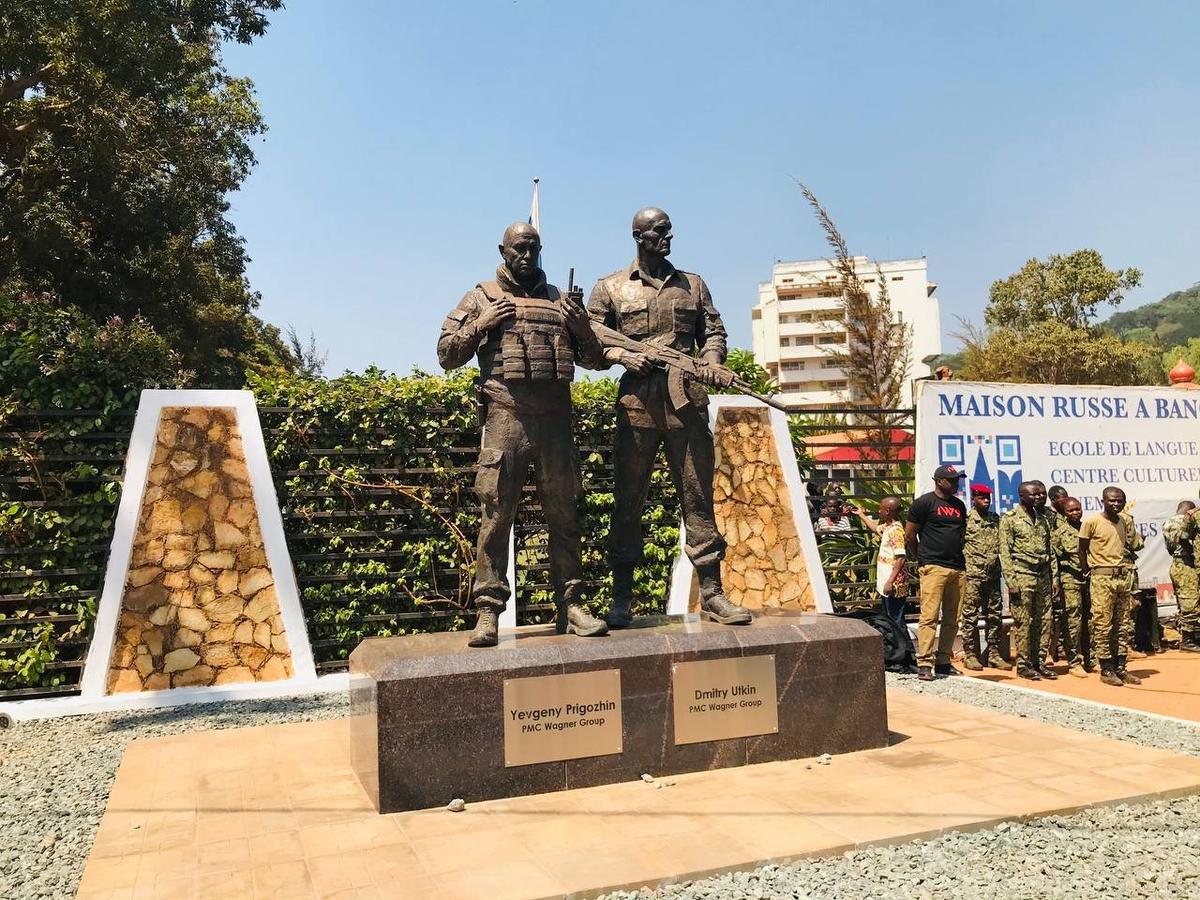
The monument to Prigozhin and Utkin in Bangui. Photo: officersunion / Telegram
A monument to Yevgeny Prigozhin, the late head of Russian mercenary organisation the Wagner Group, was unveiled on Tuesday in Bangui, the capital of the Central African Republic (CAR), a Wagner-affiliated Telegram channel reported.
According to the Officers Union for International Security (OUIS), the Russian organisation contracted to train the armed forces, police and gendarmerie of the CAR, local officials and several Wagner fighters attended the unveiling ceremony, which took place outside Bangui’s Russian House, a branch of the Moscow-funded network of cultural centres aimed at promoting Russia abroad.
The five-metre tall monument, which portrays Prigozhin holding a walkie-talkie and wearing a bulletproof vest standing alongside Wagner commander Dmitry Utkin, was erected to “honour the memory of heroes”, the Wagner-affiliated channel wrote, referring to the Wagner fighters who have been in the CAR since 2018.
Current estimates made by the European Council for Foreign Relations (ECFR) put the number of Africa Corps fighters currently in the Central African Republic at around 2,000, with roughly another 1,000 in Mali, 100 in Burkina-Faso, and smaller contingents in both Niger and Sudan.
Both Prigozhin and Utkin were killed in a plane crash in August 2023, two months after the Wagner Group’s march on Moscow, which had begun with the aim of ousting Russia’s then-Defence Minister Sergey Shoigu, but ultimately ended in humiliating failure.
Despite the Wagner Group having been formally disbanded since the failed mutiny and Prigozhin’s death, many of its mercenaries remain active on the African continent, with the majority of its fighters being absorbed into a rebranded version of Wagner known as the Africa Corps, which is controlled by Russia’s Defence Ministry.
The unveiling of the statues appears to be another sign of growing Russian influence in the country, and follows CAR President Faustin-Archange Touadéra’s appointment of Wagner commander Dmitry Podolsky as his security adviser in September.
Last week, Chad’s Foreign Minister Abderaman Koulamallah announced that the country would be ending its long-standing military cooperation with colonial power France. Despite Koulamallah stressing that the decision did not entail “a break with France”, the announcement follows similar ones made in recent years by former French colonies in West Africa ending their military cooperation with Paris, including Mali, Burkina Faso and Niger.
The reduced French influence in Central and West Africa has raised concerns in the West over the increasing influence exerted by Russia in the region thanks to its mercenary presence in the Sahel and beyond.
